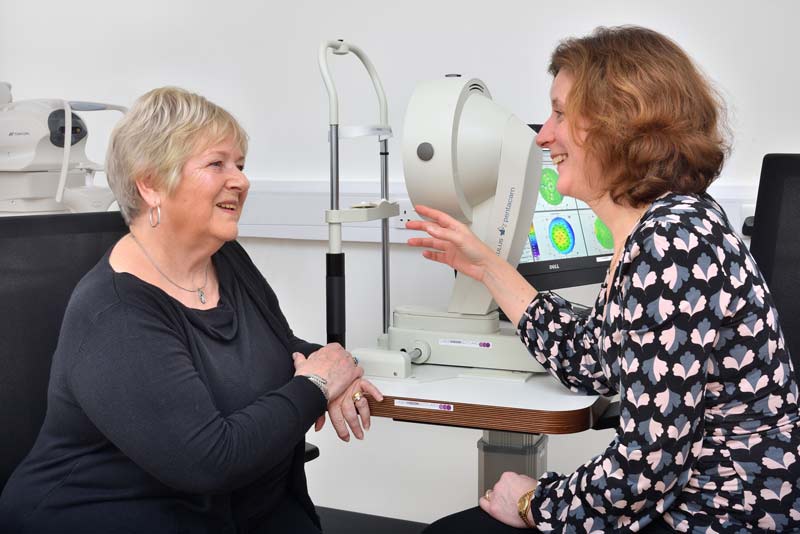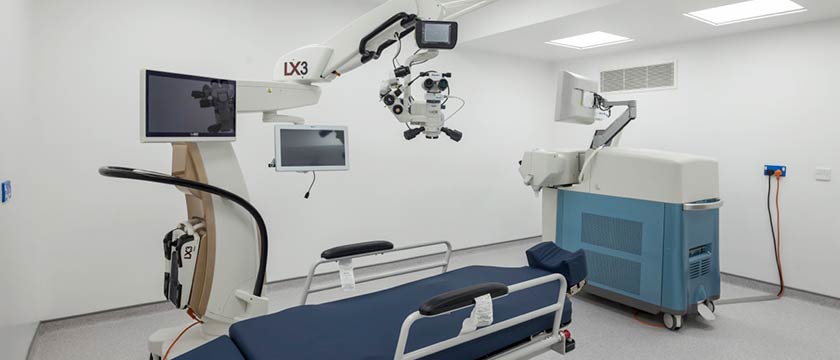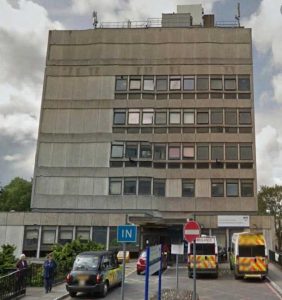
What Is Glaucoma and How Is It Treated?
Glaucoma is a very common eye condition. It is caused when the optic nerve that connects the eye to the brain is damaged by long term raised pressure inside the eye from fluid build up in the front compartment of the eye. If not treated early, glaucoma can lead the visual impairment and eventually to blindness.
Although it’s easily treated, with laser eye surgery being one of several options, it can lead to vision loss if it is not diagnosed early. Visual loss that has occurred before detection and treatment is usually not possible to restore.
Glaucoma usually does not appear until the individual is elderly. It is most common in people over 70 years of age. The cause is normally attributed to a build-up of fluid which causes an increase in pressure inside the eye.
Common symptoms
laucoma does not present suddenly, it happens slowly and over many years. Initially the condition has no symptoms at all so it is often not detected until its latter stages.
As with any eye conditions if you have any concerns about your vision you should seek the advice of an optician or doctor as soon as possible. Testing for glaucoma is easy and can be carried out by an optometrist at your local optician. Tests are non-invasive and painless. The pressure within the eye can be tested and measurements taken to check whether glaucoma has developed.
When more noticeable symptoms do appear, you will often experience a loss of vision around the edges first. Other initial symptoms can include blurred vision or seeing rainbow-coloured circles around bright lights .
Most likely both eyes will be affected.
Occasionally there can be a sudden onset which can induce nausea and vomiting, intense eye pain, a red eye, headache and tenderness around the eye. If this happens, you should seek immediate medical help at your local A&E department.
Early diagnosis is essential to prevent permanent sight impairment and to prevent your vision getting any worse. Whilst the actual cause of glaucoma isn’t known, there are certain risk factors that increase your chances of suffering from glaucoma:
- Age – as age increases, you are at increased risk.
- Family history – if a parent, sibling or close relative has suffered then you are also more likely to be affected.
- Ethnicity – certain ethnic groups such as Africans, Asians and Caribbeans are at increased risk.
- Other eye conditions – such as diabetes, may increase your risk.
Treatment options
If glaucoma is identified by an optometrist, they will refer you to an ophthalmologist who will discuss treatment options with you.
It is important to seek treatment quickly because vision loss from glaucoma cannot be reversed but it can be arrested.
At Laser Vision Scotland there are a few options for treatment that your ophthalmologist will discuss with you.
Eye drops can be used to reduce the pressure in the eyes. Drops work by helping the eye drain fluid better or reducing production of fluid. This reduces the pressure in the eye and therefore protects the optic nerve. Interestingly, the second most common type of eye drop used in glaucoma is beta blockers, the drug used to reduce blood pressure!
Laser treatment is suitable when eye drops do not work or as an alternative to eye drops. It can be beneficial in that it eliminates the need for a daily eye drop routine and can be very effective, albeit temporarily.
The treatment can be done while you’re awake. Drops are used to numb the eyes and you are unlikely to experience more than just very minor discomfort during the procedure.
The procedure only takes a few minutes.
There are different types of laser treatment at Laser Vision Scotland.
Laser trabeculoplasty:
This is when the laser is used to open up tubes within the eye and allow fluid to drain out thereby reducing pressure inside.
Cyclodiode laser treatment:
This involves the laser being used to weaken the eye tissue that produces the liquid and similarly reduces the pressure.

Surgery
Where eye drops and laser eye surgery have failed, there are other surgical options to consider. Trabeculectomy involves removing part of the eye-drainage tubes to allow fluid to drain more easily. Drainage implant surgery involves your surgeon placing a tiny tube within the eye to assist with fluid drainage.
Consultant Ophthalmologist Mr Sanjay Mantry said: “Glaucoma is something we see every day and with an ageing population is something we can expect to see more of. It’s a very common condition which we are well equipped to deal with. Our facility is world class and offers comfortable conditions in a hospital style surroundings.”
If you are worried about your vision or would like to discuss your laser treatment options to address Glaucoma then please call and make an appointment where one of our expert consultants can talk you through your options.


